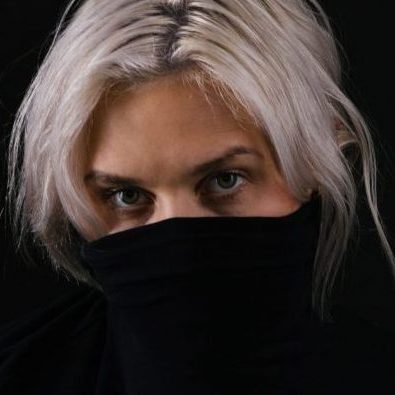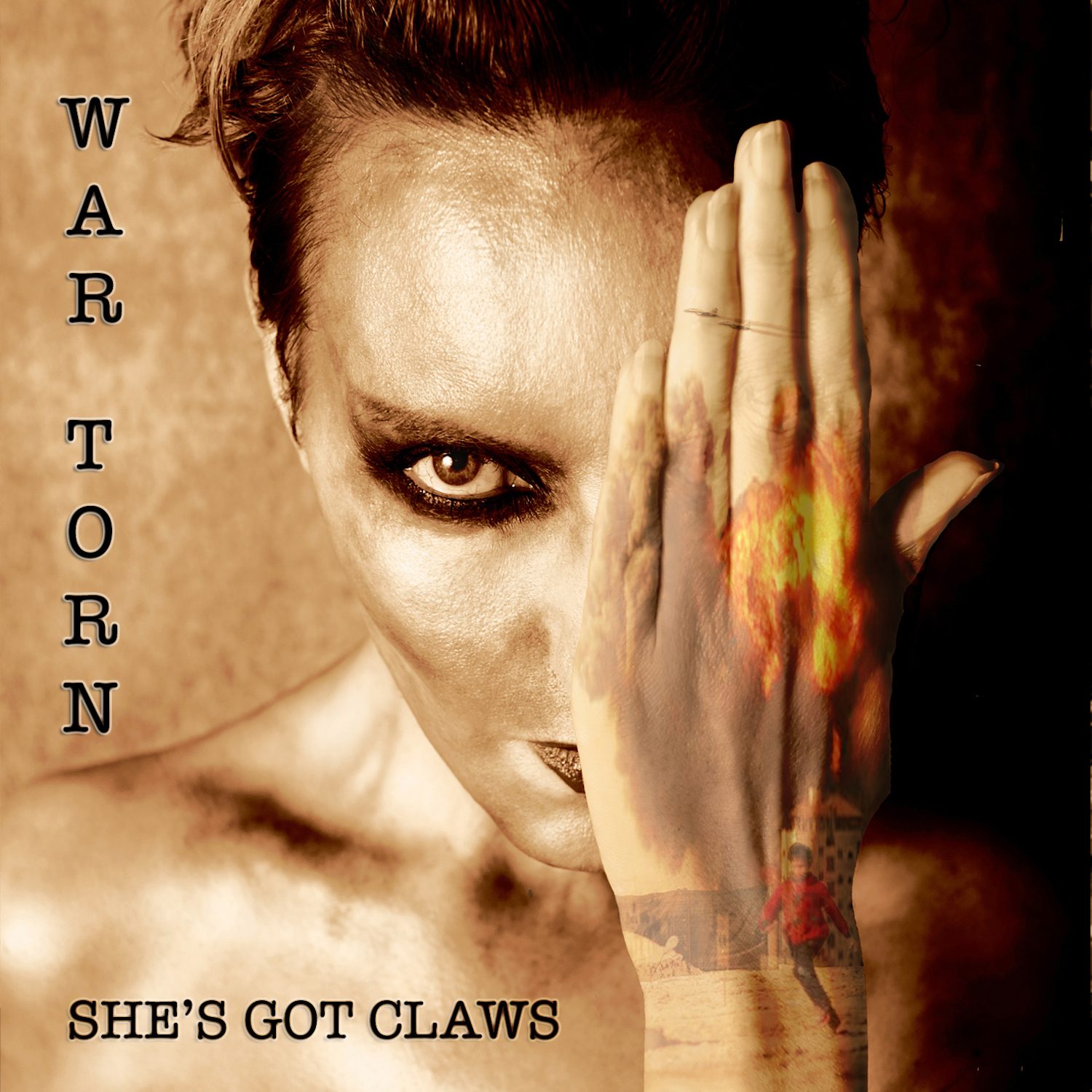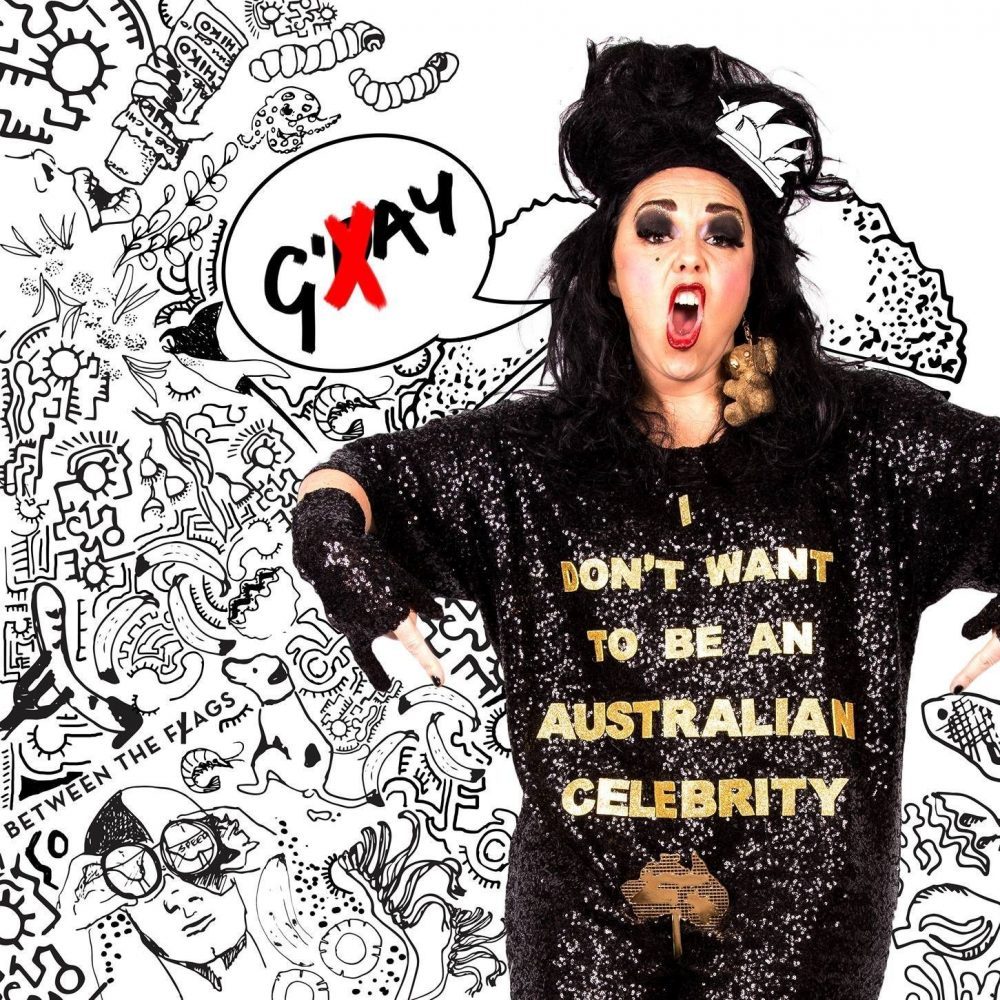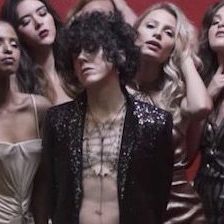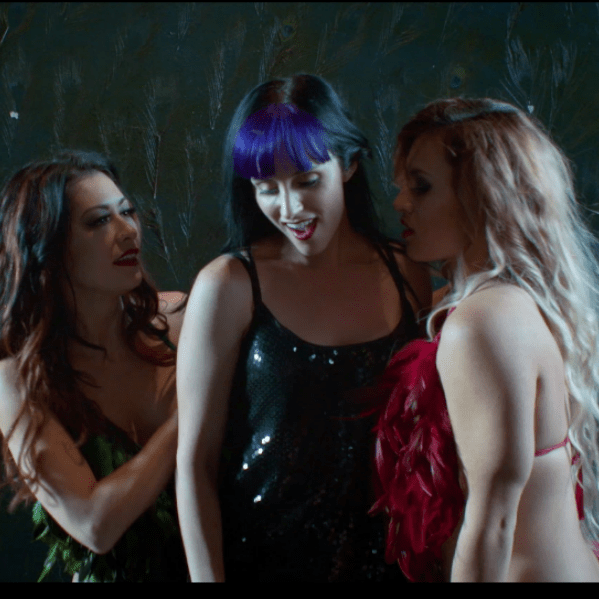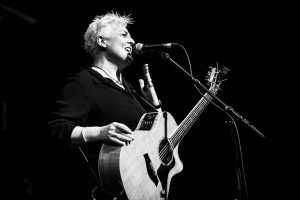 Labelled lesbian icon, activist, and paparazzi fodder, Horse tells AJ Higginson, she’s happy just to be singing.
Labelled lesbian icon, activist, and paparazzi fodder, Horse tells AJ Higginson, she’s happy just to be singing.
The beguiling combination of Horse androgynous looks and sensuous voice propelled her to fame in the 90s but much has changed since the Scottish singer first made the scene. In many ways, being an artist—especially a female artist—is more difficult than ever.
The current tabloid culture of celebrity worship, youth culture, reality TV and instant internet fame certainly seems out of sync with what someone like Horse represents. Her ninth studio album may be called Home, but when effortlessly demonstrating an incredible vocal range (with the likes of Careful and Ghost), she proves that talent is timeless
Last year was the 25th anniversary of your breakthrough album The same sky. What’s the secret to Horse’s longevity?
Making The same sky was thrilling and exhilarating a real-life changer. I’ve never, ever, lost that sense when making music. It brings me great joy. I understand, with hindsight that from my teenage years to now, my music has developed from within me by way of osmosis and an absolute heart not from my head. It has quite literally saved me. It has been my solace and comfort, a companion and a great healer. My ideas of success and longevity have completely and utterly changed over the years I have been making music. Because I put so much of myself into my music, it’s obvious why I would take it personally when commercial ”success”, or rather, the widely held view of what “success” is, may have eluded me. However, I reached a place personally and professionally long ago of being happy with my success. The great sense of achievement and pleasure from still making music and having a true and positive impact on people is incredible. I feel very lucky.
It’s easy to forget now what an impact being openly gay had back then. Even your record company were marketing you “ Horse. What is it—a man or a woman?” Do you feel this helped or hindered your career?
I know that going through all of those times was also part of me ”finding” myself. I was never closeted. Like most kids, I had no idea who I was and it was not just my peers but the adults who, also, could be very cruel.
I grew up in a town where I felt ostracized I was cast out for being gay and became very lonely. To then be exposed in public on a grander scale was a little like being dragged back to that situation where I ran the gamut of the bullies, the ne’er-do-wells, and the town fathers—only this time there was no escape. Capitol didn’t know what to do with me and I, myself, had no idea either—I was just trying to be myself. I felt very hurt when I saw the flyer in a club we were playing in, saying “ Horse. What is it—a man or a woman?”
The biggest lesson I learned, being signed to two major labels, was that you were a commodity, something that was being sold. We just wanted our music to be heard and naively hoped for that platform. Today’s Stonewall tag would’ve been perfect—I am … whatever … get over it. One of the Saturday Kids TV producers said she couldn’t play our videos to children—I wasn’t appropriate, I was offensive. I was so hurt and embarrassed to think someone thought me dangerous for children.
There is nothing more life-affirming than to find, that through sharing your own struggles, you’ve helped someone else.
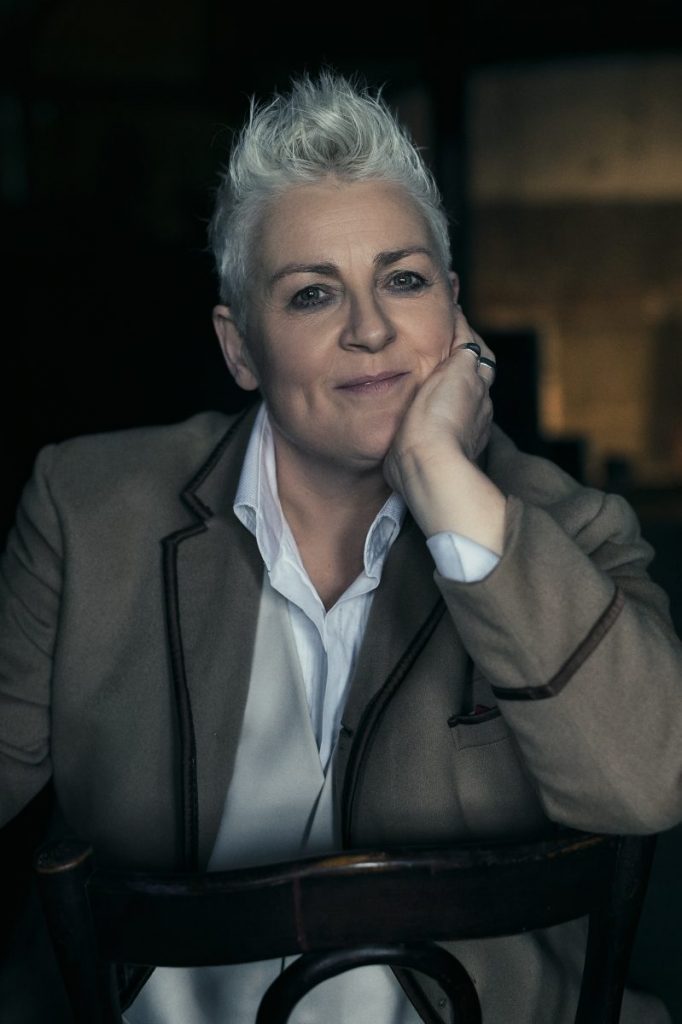
Your openness about various parts of your personal life has made you a source of inspiration for a lot of people. Where do get your strength and inspiration from?
I think I have always been true to myself. I haven’t sold myself short; I haven’t endorsed things I don’t believe in, and I have steadfastly been myself. The more I’ve struggled the more stubborn I have become. I have also heard first_hand from people about my difference to them. My music has been very important to many people. There is nothing more life-affirming than to find, that through sharing your own struggles, you’ve helped someone else. I get inspiration from music. I get inspiration from people. My wife inspires me. I get inspiration from simple acts of kindness and goodness.
Your music is very personal. You put yourself out there and on the line. You give a lot of yourself. It’s one of the things that’s made you popular with your loyal fans. Are there any risks with that? Do you still feel vulnerable when you get up and perform?
Horse: I always get nervous or wound up before I perform. Whether to one person or a thousand—it’s just how I am. I care about what they think. After all these years I don’t think I could ever feel distant from my audience. I get a real buzz from performing—it’s a two-way thing. I quite literally feel supported because they have come to hear me sing and for that, I will always be grateful. I meet people after gigs; I have done for years. I think the only downside is that after performing for up to two hours it can take a long time to meet everybody so I get a bit tired.
After all these years of performing, I find that the most powerful place in the room is on the stage with the microphone. I am now more open than I have ever been. The risks from doing that are so much less and the rewards are sublime.
You have shown a great deal of appreciation for your fans. Were there any life lessons you gained along the way to encourage you to never take the fans for granted?
I think as time has gone on I realise how important the fans have been in my life and they remain so. We all have life experiences that we share. Several good fans have passed away in the last few years. My reaction and how upset I was surprised me. In doing so, I realised that there has been a change in the relationship between me and my fans in recent times. In the early years, I had to keep a distance from them to keep myself “safe” and to keep the professional and personal separate.
However, as I said, I think that within my music the experiences are universal. People get so much out of the music—it’s very important to them. There is probably no need to differentiate between the professional and personal at this point in my life or to be distant. Some people have followed me for over 30 years—how about that?
Where does your sense of the spirit come from?
Again, if I go back to music, I voice myself, everything, through my music. Singing is such a cathartic thing. We sing with soul. I think my spirituality is very personal to me. It is not a specific church. Since losing both parents I’ve had more of a sense of life and wellbeing beyond the physical.
Why do you think so few older women musicians are as revered as their male peers?
Until we get to the point where someone is referred to simply as a musician—good or bad—then there will always be the labelling. Women do not make women’s music any more than men make men’s music. Before we are judged on our music, we have to get over various hurdles first. This is a universal journey that all women are on. Looking back at our suffrage I am incredulous that there is still stigma and discrimination. Also, if we think in the West that it’s difficult, try living in an African or Eastern country.
Activism is very important to you—speaking up for people who don’t have a voice, etc. Can you talk about what role your music plays in creating community and awareness of important issues?
If you can be of use to one person by being either accessible, being visible or saying something which gives hope. In my experience, you can have so much influence and bring so much by just being. I wouldn’t say I’m an activist; I don’t look for controversy. I’m not a political person, but I am a person with compassion. I care passionately about equal rights. I care about human rights. Above all, I strive to be the best I can—to be better than I was yesterday and better tomorrow.
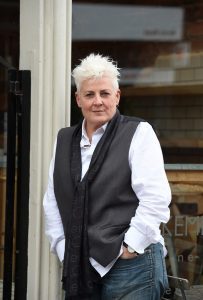
As the first out woman in music to sign to a major record label (in the UK and Europe) what’s your proudest moment as a gay icon?
As a person who has been through so many things (although I did not personally make these things happen) I feel that my visibility with many, many others, helped lead the change. The two things that stand out for me are—the day I got married and being in Parliament for the final debate and passing of the Equal Marriage Bill.
The Edinburgh Fringe Festival this year marks a new departure for you—a one-woman show (Careful) on your life growing up gay in the 70s and the times you have had, where you had to be, from the show’s title, “careful”.
It’s my story of triumph over adversity through music. I’m excited and scared at the prospect, as I’ve never done anything like this in my life before. Lynn Ferguson, who has written for BBC, Pixar and CBS, including her own sitcom, has written the play and Maggie Kinloch, former Deputy Principal of the Royal Conservatoire of Scotland, is directing.
Rehearsals are going well and I’m so looking forward to it.
Knowing all you know about yourself now, what would you tell your younger self?
Don’t sweat the small stuff. Don’t get all worked up about it, because it’s all right—you’re going to be okay.
What would you like your legacy to be?
I would love for it to be, “Horse, she just changed the world through her music a little bit.” That may be because I was here, I was open, I am me, life was okay for some others too. In the end, it’s all about the music.

